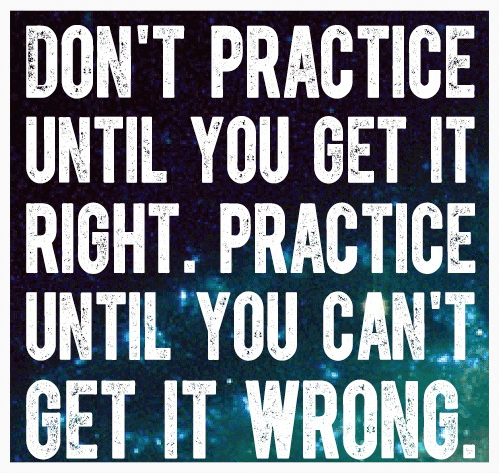Leading You To Excellence: Don't Let Anyone Put Out Your Fire
How many times have you attended a training or conference and left feeling inspired, motivated and 'on fire' to use what you learned? Now, out of all those times how quickly did those flames get put out? For most of us, finding ways to use what we learned is much harder than we thought and all too often we let life happen. We allow our supervisors to tell us all the reasons "that won't work here," and we get too busy doing what we "need" to do instead of making room to practice "new" things. My goal with this newsletter is to provide you some concrete ways to keep those flames burning and make some positive change!

So, if we really believe training is important and we are inspired to be different during a class, why don't we more consistently use what we have learned? It's simple really, as humans we are always seeking a state of homeostasis (a steady, predictable state), so this makes even the smallest modification to our daily lives an unattractive detraction from the norm. We all get used to being who we are and doing what we have always done, we end up making excuses or not being able to "get a round to it."
For most of us the pull of the familiar will always be stronger than the pull toward the new and unknown. As an example, how many of you after reading the first two newsletters have been consistently working on "achieving your next level of excellence" or "leaving a legacy?" I heard from many of you who described feeling inspired and taking a first step, but I wonder how many of you have made consistent progress since then. So, how do you overcome the barriers that keep you from moving forward and find ways to more regularly use what you have learned?

First, you have to be willing to be uncomfortable (a concept we discussed in the first newsletter). Change is hard and since none of us like this feeling we tend to move quickly back to anything that feels more comfortable or "known." So, it's important that you expect to feel uncomfortable and be willing to tolerate this feeling as you practice the new skill or approach. If you can learn to tolerate this discomfort, eventually what is "new" will become a habit and thus, lead you back to a state of comfort again.
Second, because most training opportunities provide you with more than one new idea, you need to prioritize what you will practice first. Although you might have five new things you want to implement or utilize at work, picking too many to do at once will leave you feeling overwhelmed and lead you to put change off because you "don't have the time." So, start small. Pick one thing that is easiest and won't require a great deal of modification from your current way of being in the world. If you can start with something that might only be a slight modification from who you currently are, you will be more likely to stick with it.

Third, you must find time in your daily life to devote dedicated "practice" time to the new behaviors. Without regular practice, it will be very difficult to utilize what you have learned on a consistent basis. So, in your hectic, overbooked, busy day, how do you do this? You make the time.
Find 10-15 minutes (more if you can) each day to think or behave in a way that enables you to operate from the new knowledge you got from the training you attended. This time can be on the way to work, during a lunch break, or while talking with a co-worker or supervisee. Although this practice will seem strange at first and you may doubt that 10-15 minutes will make an impact, if you do it every day by the end of the week you have been practicing the new behavior for at least an hour. These hours will quickly add up to being enough to establish a new habit.
Fourth, you must resolve to not let anyone put out your flame for change. You will always be surrounded by those who don't want to change, are threatened by it, or will tell you all the reasons it "won't work." Your work is to tune these people out and control your own destiny. Maybe you cannot change department policy or make all supervisors develop positive relationship with those they supervise, but you CAN change your world! Resolve that despite your environment, you are going to use what you learned and not be a victim of circumstance. You can learn to control yourself and find ways to be better, despite circumstances.

Finally, if you need help ask for it. As I mentioned before, change is hard! So, ask if you need support, encouragement, an accountability partner, or someone to practice with. With all the negative messages we face on a daily basis and the hectic nature of our lives, we all need to surround ourselves with people who will support and encourage our change.
Until next time, focus on fanning the flame of change and keep to the Road Less Traveled.....
© Kimberly A. Miller, Ph.D. 2014
Dr. Miller is a licensed psychologist, coach and public safety consultant, coach and trainer who helps individuals and organizations reach their next level of excellence. Visit her website (www.KimberlyMillerConsulting.com) for information on her services, upcoming trainings and resources. Contact her at
[email protected] to learn more about how she can help you and your organization achieve your next level of excellence.
Feel free to share this newsletter and encourage others to sign up for her free newsletters by sending them the link below.